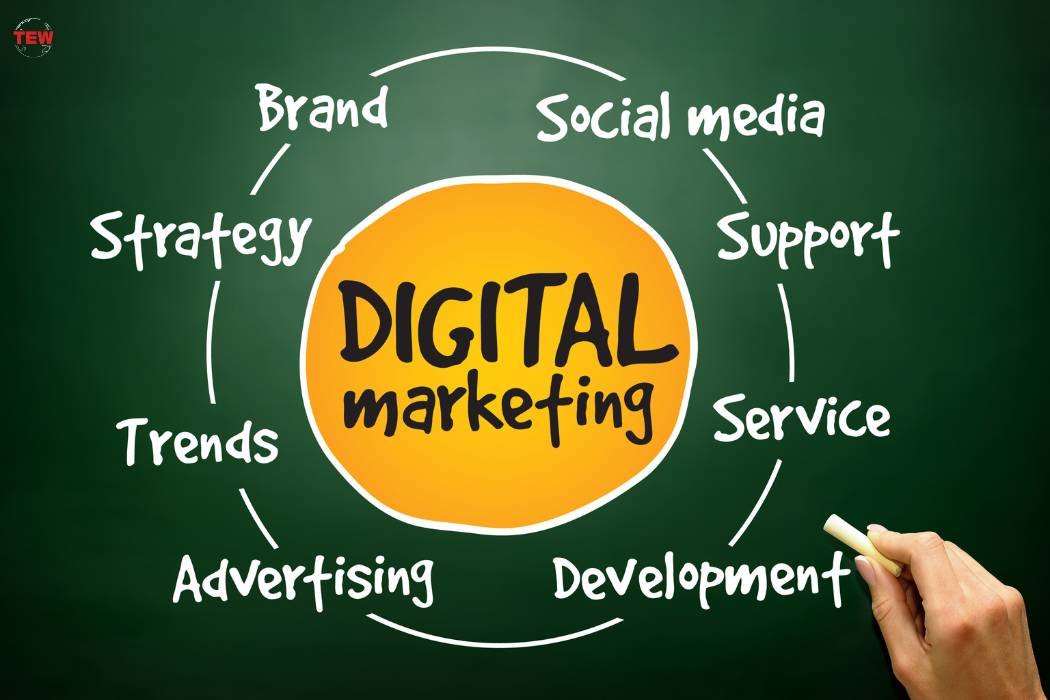In the ever-evolving landscape of digital marketing, where data reigns supreme, the role of a performance marketer has become increasingly pivotal. These modern-day alchemists blend creativity with analytics, leveraging data-driven strategies to conjure measurable success for businesses. In this article, we’ll unravel the multifaceted world of performance marketing, exploring its intricacies, key components, and the skills that make performance marketers indispensable in the dynamic and competitive digital arena.
The Essence of Performance Marketing
Performance marketing is more than a buzzword; it’s a results-driven approach that transcends traditional marketing methods. At its core, performance marketing is about achieving tangible outcomes, whether it be clicks, conversions, or sales. What sets it apart is its relentless focus on data, utilizing analytics to track, measure, and optimize campaigns in real time.
Key Components of Performance Marketing
1. Data-Driven Decision Making:

The bedrock of performance marketing lies in the meticulous analysis of data. Performance marketer is adept at interpreting metrics like click-through rates (CTR), conversion rates, and cost per acquisition (CPA). This analytical prowess allows them to fine-tune campaigns on the fly, ensuring optimal performance and return on investment.
2. Targeted Advertising:
Gone are the days of broadcasting messages to a wide audience and hoping for the best. They leverage sophisticated targeting techniques to ensure their messages reach the right audience at the right time. By harnessing audience segmentation, demographics, and behavioral data, they craft personalized campaigns that resonate with specific consumer segments.
3. Search Engine Marketing (SEM) and Optimization (SEO):
Search engines are the compass of the digital landscape, and marketers know how to navigate them strategically. Search engine marketing involves paid advertising on platforms like Google Ads to boost visibility, while search engine optimization focuses on organic strategies to improve a website’s ranking. Both are critical for enhancing a brand’s online presence and driving performance.
4. Social Media Mastery:
The pervasive influence of social media has made it an integral part of performance marketing. Platforms like Facebook, Instagram, and Twitter offer targeted advertising options that allow them to reach specific demographics with precision. Crafting compelling content for these platforms is an art that marketers have mastered to engage audiences effectively.
5. Content Marketing Expertise:
Content is the lifeblood of digital marketing, and marketers are skilled storytellers. They understand the power of content to attract, engage, and convert audiences. Whether it’s a blog post, video, or interactive infographic, they know how to create content that aligns with user intent and guides them through the customer journey.
6. Email Marketing Finesse:
Despite the influx of new communication channels, email marketing remains a stalwart in the toolkit of a performance marketer. Through targeted and personalized email campaigns, they nurture leads, retain customers, and drive conversions. Automation further enhances the efficiency of these campaigns, ensuring timely and relevant messages.
Skills Required to Become a Performance Marketer
1. Analytical Acumen:
Performance marketer lives and breathes data. An analytical mindset is crucial for interpreting complex datasets, extracting actionable insights, and making data-driven decisions. Proficiency in analytics tools and platforms is a prerequisite for success in this field.
2. Digital Marketing Mastery:

A solid understanding of digital marketing principles is fundamental. They need to navigate various channels, including social media, search engines, and content marketing, with finesse. This expertise enables them to craft integrated campaigns that resonate across the digital spectrum.
3. Technical Proficiency:
The digital realm is powered by a plethora of tools and platforms. They must be technically adept, seamlessly maneuvering through data analytics tools, advertising platforms, marketing automation systems, and customer relationship management (CRM) software.
4. Creativity and Strategic Thinking:
Creativity is the yin to analytics’ yang in performance marketing. Crafting compelling ad copy, designing visually appealing creatives, and developing innovative campaign strategies demand a creative mindset. The ability to balance creativity with strategic thinking is the hallmark of a successful marketer.
Adaptability and Continuous Learning:
The digital landscape is ever-shifting. A performance marketer must be adaptable, and ready to embrace new technologies, trends, and platforms. A commitment to continuous learning ensures they stay ahead of the curve and harness the latest tools for optimal results.
1. Communication Skills:
Clear and effective communication is imperative. Any performance marketer needs to convey complex campaign strategies, goals, and performance metrics to both technical and non-technical stakeholders. Strong communication fosters collaboration and ensures everyone is aligned toward common objectives.
The Evolution of Performance Marketing
The realm of performance marketing is not static; it’s a dynamic ecosystem that evolves with technological advancements and shifts in consumer behavior. Here are some trends shaping its evolution:
1. AI and Machine Learning Integration:
Artificial intelligence (AI) and machine learning (ML) have permeated performance marketing, revolutionizing campaign optimization. AI-powered algorithms automate tasks, predict user behavior, and enable personalized targeting at scale. This infusion of intelligence enhances the efficiency and effectiveness of performance marketing campaigns.
2. Privacy Concerns and Regulatory Landscape:
As data privacy concerns mount, a marketer is navigating a changing regulatory landscape. Compliance with regulations like GDPR and CCPA is paramount. Balancing personalization with privacy has become a delicate dance, and marketers must tread carefully to maintain consumer trust.
3. Ephemeral Content and Short-Form Video Dominance:
The rise of ephemeral content on platforms like Instagram Stories and TikTok has reshaped performance marketing strategies. Short-form video content has become a preferred medium for engaging audiences. They are adapting to this trend, emphasizing creativity in concise and captivating storytelling.
4. Voice Search Optimization:

With the proliferation of voice-activated devices, voice search optimization has gained prominence. They are optimizing content and campaigns to align with the nuances of voice search queries, recognizing the changing landscape of how users interact with search engines.
5. Influencer Marketing Integration:
Influencer marketing has seamlessly integrated into performance marketing strategies. Collaborating with influencers provides brands with access to established audiences, building credibility and authenticity. Every performance marketer leverages influencer partnerships to extend the reach and enhance engagement.
Challenges and Opportunities in Performance Marketing
While performance marketing opens doors to unprecedented opportunities, it also presents challenges that demand strategic navigation:
1. Saturation and Ad Fatigue:
The digital space is crowded with content and ads, making it challenging for every performance marketer to capture attention. Ad fatigue, where users become desensitized to repetitive or irrelevant ads, necessitates diverse and engaging content strategies to stand out.
2. Ad Blockers and Changing Ad Ecosystems:
The prevalence of ad blockers poses a hurdle to traditional advertising methods. They must adapt to new ad ecosystems, exploring alternative channels and methods to reach their audience effectively.
3. Attribution Modeling Complexity:
Determining the contribution of each marketing touchpoint in the customer journey, known as attribution modeling, is a complex task. Marketers grapple with understanding the customer journey and assigning value to various interactions.
Conclusion: The Alchemy of Success
In conclusion, performance marketing is both an art and a science, requiring a delicate balance of creativity and analytics. As the digital landscape continues to evolve, performance marketers must stay agile, embracing new technologies and strategies. With the right blend of skills, adaptability, and a keen understanding of the digital ecosystem, they are the wizards who transform data into tangible business success in the digital realm. As businesses navigate the complexities of the modern marketing landscape, the role of the performance marketer remains indispensable, casting spells of innovation and strategic prowess to drive measurable and impactful results.




